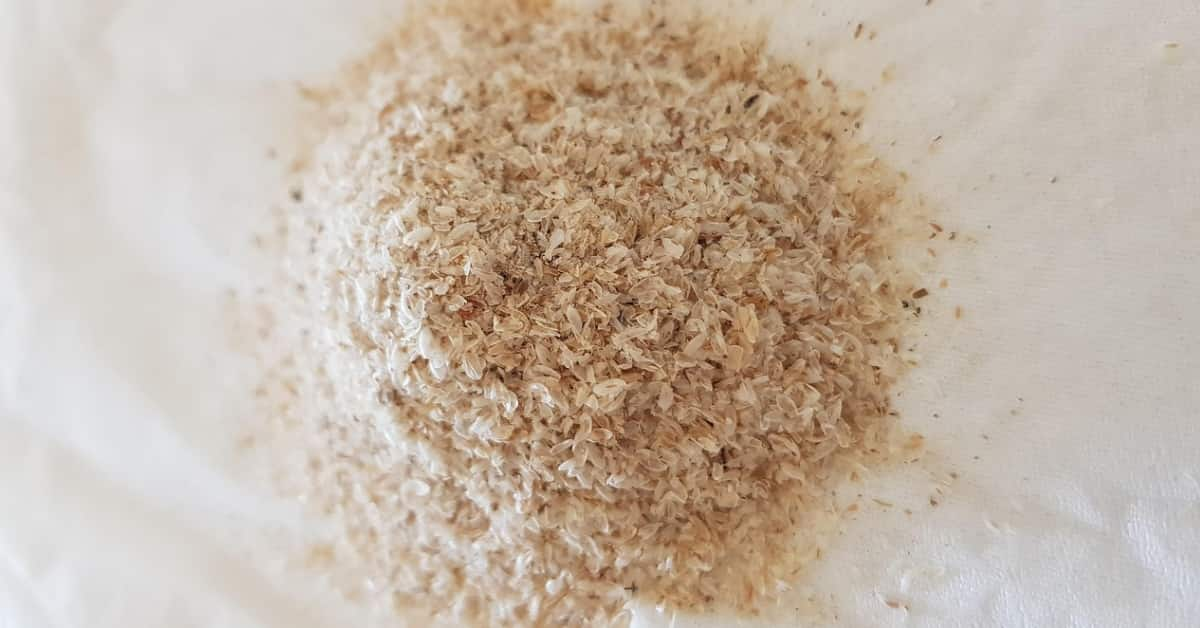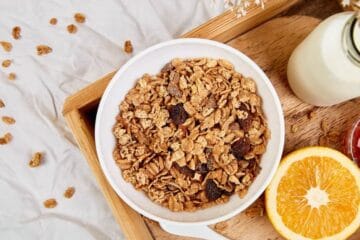Table of Contents
Introduction
Psyllium is a soluble fiber obtained from the seeds of Plantago ovata, an herb grown mainly in India.
People use it as a dietary supplement. It is available as husk, granules, capsules, or powder. Manufacturers may also fortify breakfast cereals and baked goods with psyllium.
Psyllium may absorb water and become a thick, viscous element that resists digestion in the small intestine.
Its resistance to digestion helps regulate blood sugar levels and triglycerides. It may also aid weight management and relieve mild diarrhea and constipation. Psyllium is a laxative used to treat constipation. Constipation happens when bowel movements become less common and stools become difficult to pass. This medication comes as granules or a powder that you need to mix with a cup of water. Follow the directions on the label & take this medication as directed.
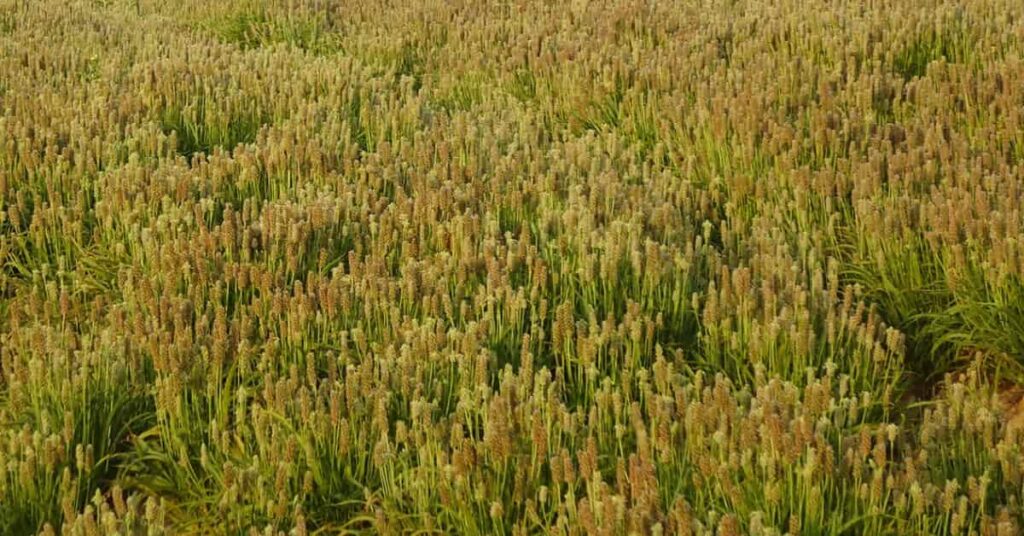
Psyllium
PSYLLIUM (SIL i yum) can support heart health and digestion. It works by growing the bulk of the stool. It increases pressure in your intestines, which helps your intestines move stool. It also lowers the amount of cholesterol your body absorbs from food.
It is a form of fiber made from the husks of the Plantago ovata plant’s seeds.
It’s most commonly called a laxative and is available over-the-counter (OTC) as ispaghula husk (Fybogel).
However, some research suggests that taking psyllium may benefit many parts of the human body, including the heart and pancreas.
Psyllium Husk
Psyllium is the name of the plant, while psyllium husk is the outside coating of the psyllium seed, which is the more common form used for its high soluble fiber content. Psyllium husk is used as a fiber supplement, in baking, and for its digestive and cholesterol benefits. While whole psyllium seeds contain both soluble and insoluble fiber, the husk is the part that forms a gel when mixed with water, making it the primary source of the product’s thickening and binding properties.
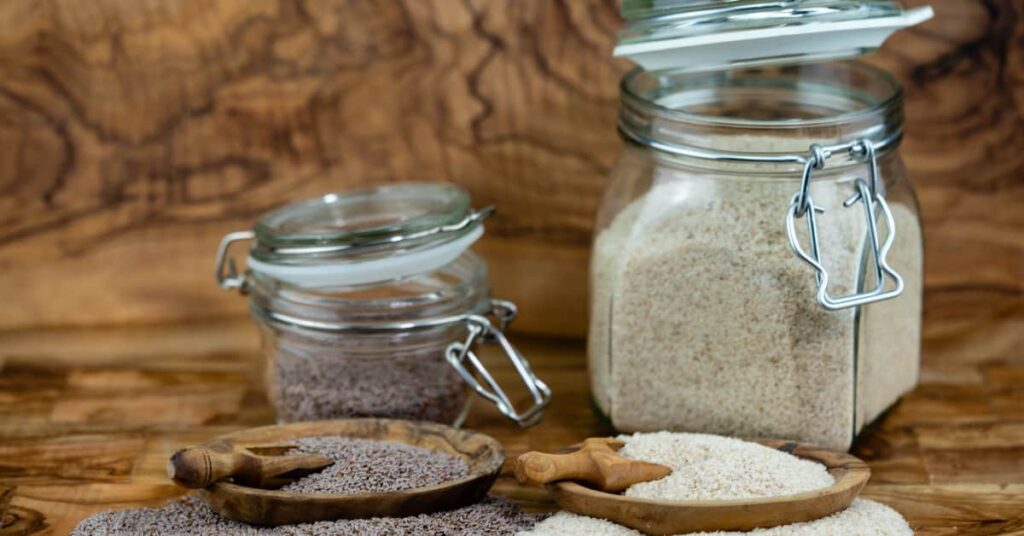
Form
It is mainly available and eaten in three forms, all derived from the seeds of the Plantago ovata plant:
1. Psyllium Husk:
- Description: This is the most common and popular form. It consists of the outer layer (husk) of the psyllium seed, which is separated and sold as a dried product. It is light, coarse, and fibrous.
- Use: It is the most effective form for increasing fiber intake and promoting regularity because it is nearly pure soluble fiber. It is often mixed with water, juice, or used in smoothies and fiber supplements.
2. Psyllium Husk Powder (Ground Psyllium):
- Description: This is the psyllium husk that has been finely ground into a powder. It is much finer than whole husks, resulting in a denser product that absorbs water more quickly.
- Use: It is preferred in baking (especially gluten-free recipes) as it blends smoothly into doughs and batters. It is also used in supplements where a smoother, less textured dose is desired, but it tends to gel more quickly than whole husks.
3. Psyllium Seed:
- Description: These are the whole, intact seeds. They are small and brown.
- Use: The whole seed is less common in Western markets but is sometimes used in traditional medicine or consumed whole. However, the husks (powder or whole) contain the vast majority of the beneficial soluble fiber.
In India, it is widely known by its Hindi name, Isabgol or Isapgol, and is most commonly sold in whole-husk form.
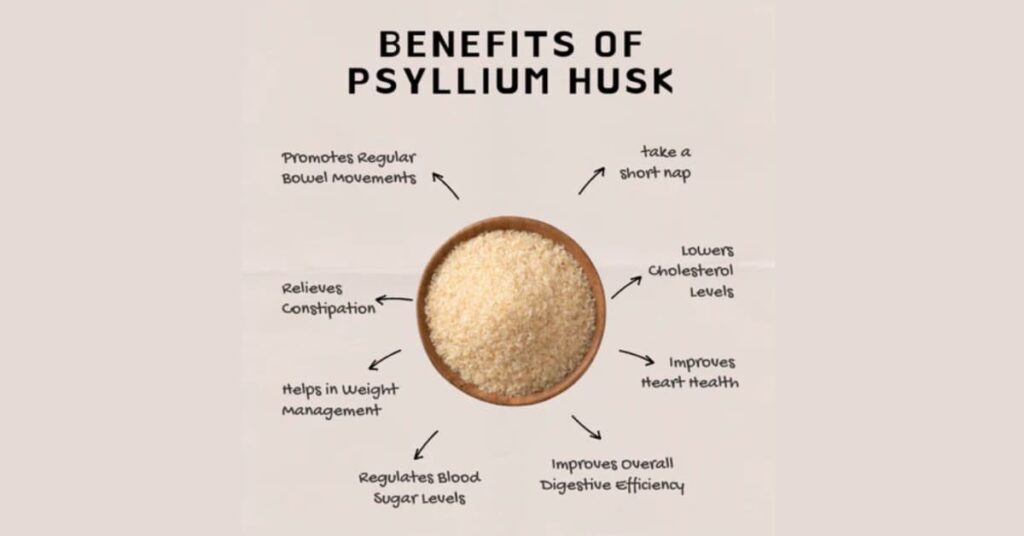
Psyllium Husk Benefits
Here are 12 key health benefits:
I. Digestive and Gut Health
1. Promotes Bowel Regularity:
It is a bulk-forming laxative that absorbs water in the intestines, increasing stool volume and moisture to relieve and prevent constipation.
2. Soothes Diarrhea:
Paradoxically, the soluble fiber absorbs excess water in the gut, helping to solidify loose stools & providing relief from mild diarrhea.
3. Supports Gut Microbiome:
The fiber perform as a prebiotic, feeding beneficial bacteria in the colon and fostering a healthy, diverse gut flora, that is vital for immunity and overall health.
4. Relieves IBS Symptoms:
By regulating and normalizing bowel function (both constipation and mild diarrhea), it can help manage symptoms or signs associated with Irritable Bowel Syndrome (IBS).
5. Aids Hemorrhoid Management:
By softening stools, psyllium reduces straining during bowel movements, helping alleviate pain & discomfort associated with hemorrhoids.
II. Metabolic and Cardiovascular Health
6. Lowers “Bad” Cholesterol (LDL):
Soluble fiber ties to bile acids in the gut, preventing their reabsorption. It forces the liver to utilize circulating cholesterol to produce new bile, effectively lowering LDL cholesterol levels.
7. Aids Blood Sugar Control:
When consumed with meals, psyllium forms a gel that slows the digestion and absorption of glucose, helping stabilize blood sugar levels and improve the body’s response to insulin.
8. Reduces Risk of Heart Disease:
By positively impacting both cholesterol & blood sugar levels, it assists in mitigating several key risk factors for cardiovascular disease.
9. Contributes to Healthy Blood Pressure:
By supporting vascular health and reducing systemic inflammation, it helps manage healthy blood pressure.
III. Weight Management and Satiety
10. Promotes Satiety (Fullness):
The fiber absorbs water and expands in the stomach, prolonging a sense of fullness and naturally helping reduce snacking and overall calorie intake.
11. Supports Weight Loss Efforts:
By curbing appetite and slowing nutrient absorption, psyllium husk is a valuable tool for people aiming to manage or lower their body weight.
IV. Specialized Benefits
12. Gluten-Free Structure:
In baking, psyllium husk’s binding ability provides vital structure & elasticity to gluten-free doughs, offering a crucial benefit for those with celiac disease or issues with gluten sensitivity.
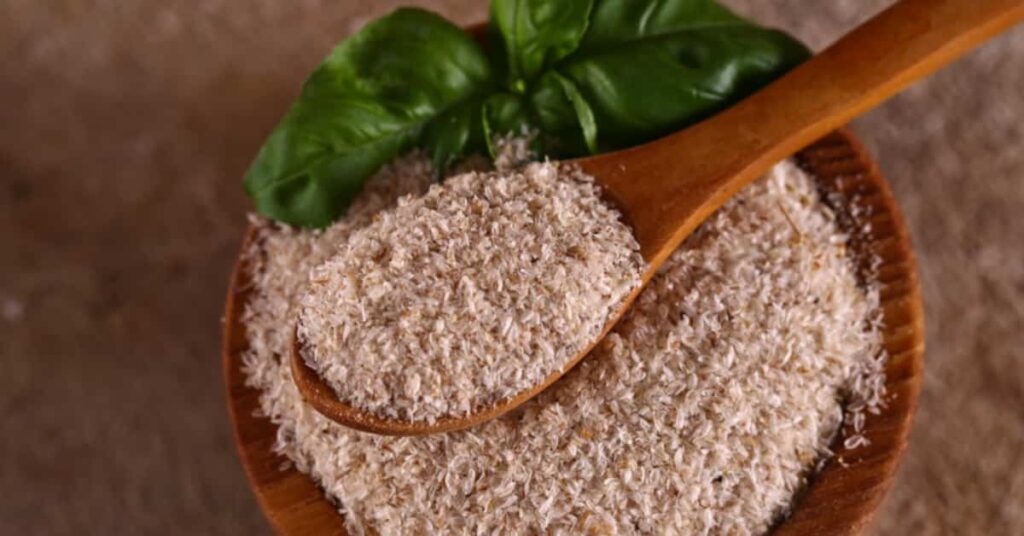
Psyllium Husk powder
Key Characteristics of the Powder:
- Higher Density: Because it is finely ground, the powder is much denser than the whole husks, meaning a smaller volume (e.g., a teaspoon) contains the same amount of fiber as a larger volume of entire husks.
- Faster Gelling: The fine particles absorb water much more rapidly, causing the mixture to gel or thicken almost instantly. This rapid gelling can make it harder to drink if not mixed quickly.
- Smoother Texture: The powder dissolves or blends much more smoothly, making it easier to hide in smoothies, protein shakes, and baked goods without the coarse texture of the whole husks.
- High Soluble Fiber: Like the whole husk, the powder is almost pure soluble fiber, delivering the same benefits for cholesterol reduction, blood sugar control, and digestive regularity.
Primary Uses:
- Gluten-Free Baking: Its chief culinary utilization is as a gluten substitute in gluten-free baking. It is crucial for providing the elasticity, binding, & structure needed to prevent bread, pizza crusts, & other baked goods from becoming dry and crumbly.
- Smooth Beverages: It is preferred for mixing into thick beverages like smoothies or protein shakes, where the coarse texture of whole husks is undesirable.
- Encapsulation/Supplements: It is the form most commonly used for filling fiber capsules due to its density.
Conclusion
Psyllium, widely known in India as Isabgol, is among the most effective and well-researched forms of soluble dietary fiber available today.
Beyond basic digestive health, the consistent consumption of psyllium husk or powder is mainly supported by evidence for its systemic benefits, including significant roles in lowering LDL cholesterol, stabilizing blood sugar levels, & promoting satiety for weight management. Whether utilized as a vital binding agent in gluten-free baking or taken as a simple daily supplement, this is an accessible, versatile, & highly beneficial addition to any diet seeking to enhance metabolic health & ensure optimal digestive function.

